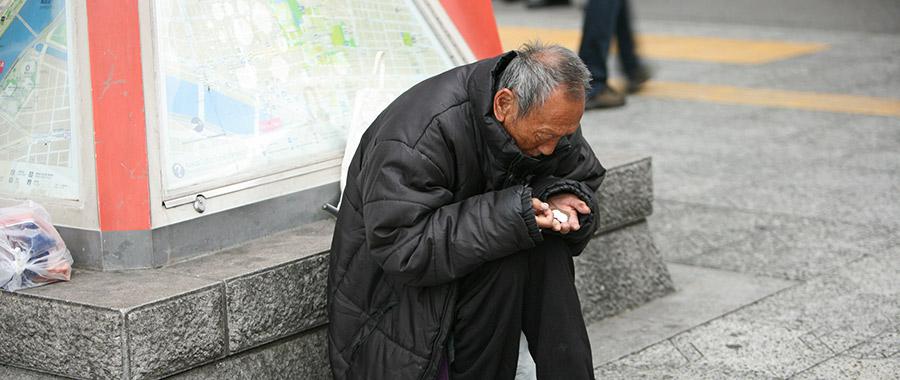In an era characterized by opulence and prosperity for some, the palpable disparity between affluence and poverty has become increasingly pronounced. The teachings of the Baha’i Faith present a poignant message directed toward those endowed with wealth, elucidating the profound interconnectedness of society and the moral imperative to address the plight of the impoverished. The phrase “The Midnight Sighing of the Poor” encapsulates the silent anguish endured by the less fortunate, serving as a clarion call to the affluent to reflect on their circumstances and responsibilities. This article explores the rich tapestry of Baha’i teachings, urging a paradigm shift in how the privileged perceive and act upon the challenges faced by the economically disenfranchised.
1. The Concept of Unity in Diversity
At the heart of Baha’i philosophy is the principle of unity in diversity, which posits that although human beings may vary in their social, economic, and racial backgrounds, they are fundamentally united as members of one human family. This interconnectedness necessitates a reevaluation of societal structures that perpetuate inequality. The affluent are encouraged to engage with the realities of poverty, cultivating empathy and understanding. This transformation in perspective can catalyze meaningful dialogue and innovative solutions to the intractable problems of economic disparity.
2. Spiritual Responsibility of the Wealthy
Baha’i teachings articulate a profound sense of spiritual responsibility that accompanies material wealth. Possessing financial resources is viewed not merely as a stroke of fortune but as a trust – a divine endowment that demands stewardship and benevolence. It is imperative for the affluent to remain cognizant of the struggles faced by the impoverished and to recognize that their prosperity should not overshadow the agony of those who endure hardship. Sharing resources and providing assistance to uplift the downtrodden aligns with the deeper spiritual truths that govern human existence.
3. Alleviating Suffering through Acts of Service
Acts of service, inspired by compassion, serve as a practical manifestation of spiritual principles. The Baha’i Faith emphasizes the importance of giving to others without expectation of reward, fostering a sense of community where mutual assistance flourishes. The affluent are urged to actively participate in philanthropic endeavors, to engage with local initiatives aimed at alleviating poverty, and to establish sustainable models of economic empowerment. Such initiatives can transform the ‘midnight sighing’ into a symphony of hope, resilience, and social change.
4. Education as a Transformative Tool
Education stands as a beacon of hope in the endeavor to eradicate poverty. The Baha’i teachings underscore the vital role that education plays in elevating individuals and communities. Wealthy individuals possess the unique opportunity to endorse and fund educational programs, thereby investing in the intellectual capital of future generations. By providing access to quality education, the cycle of poverty can be effectively disrupted, empowering individuals to shape their destinies. Moreover, education fosters critical thinking and social consciousness, engendering a transformative shift in societal norms and values.
5. The Economic New World Order
The Baha’i vision extends to the conception of a new economic order, one that transcends mere capitalism or socialism. This new order is predicated on principles of equity, justice, and the equitable distribution of resources. The wealth of nations cannot solely reside in the hands of a few, whilst the masses endure profound adversity. This Baha’i paradigm advocates for the establishment of systems that prioritize the well-being of all, creating a landscape where the poor are not merely recipients of charity but active participants in the economic sphere. Such a transformation compels the affluent to reconsider their role and influence in shaping a just society.
6. Cultivating a Spirit of Generosity
Generosity, as defined by Baha’i teachings, transcends monetary donations. It encompasses a holistic approach to life, promoting kindness and consideration in daily interactions. To genuinely address poverty, a generous spirit must pervade all aspects of society, particularly among those with means. The affluent are invited to develop a mindset that views giving as an intrinsic part of their lives, fostering a culture where collaboration and support are the norms rather than exceptions. By elevating generosity to a core value, a culture of compassion and empathy can be cultivated, making strides in alleviating the ‘midnight sighing’ of the poor.
7. The Impact of Collective Action
Individual efforts, while commendable, often fall short of generating comprehensive change. The Baha’i teachings acknowledge the power of collective action in addressing the challenges of poverty. Organizations, communities, and individuals must come together, pooling their resources and talents to create systemic change. The affluent are called to leverage their influence to advocate for policies that support the alleviation of poverty, thereby ensuring that their actions resonate beyond individual efforts and contribute to the greater good.
8. A Call to Action: Shifting Perspectives and Priorities
Ultimately, “The Midnight Sighing of the Poor” is an urgent appeal to the rich, reminding them of their capacity to foster change. The Baha’i Faith implores wealth holders to view their resources as instruments for the greater good, to recalibrate their priorities toward the welfare of all. By cultivating a deeper understanding of poverty, embracing their spiritual responsibilities, and engaging in acts of service, the affluent can transform not only their lives but also the socio-economic fabric of society. The call is not only for action but for a profound transformation in consciousness – to hear the midnight sighing and respond with compassion, action, and solidarity.
